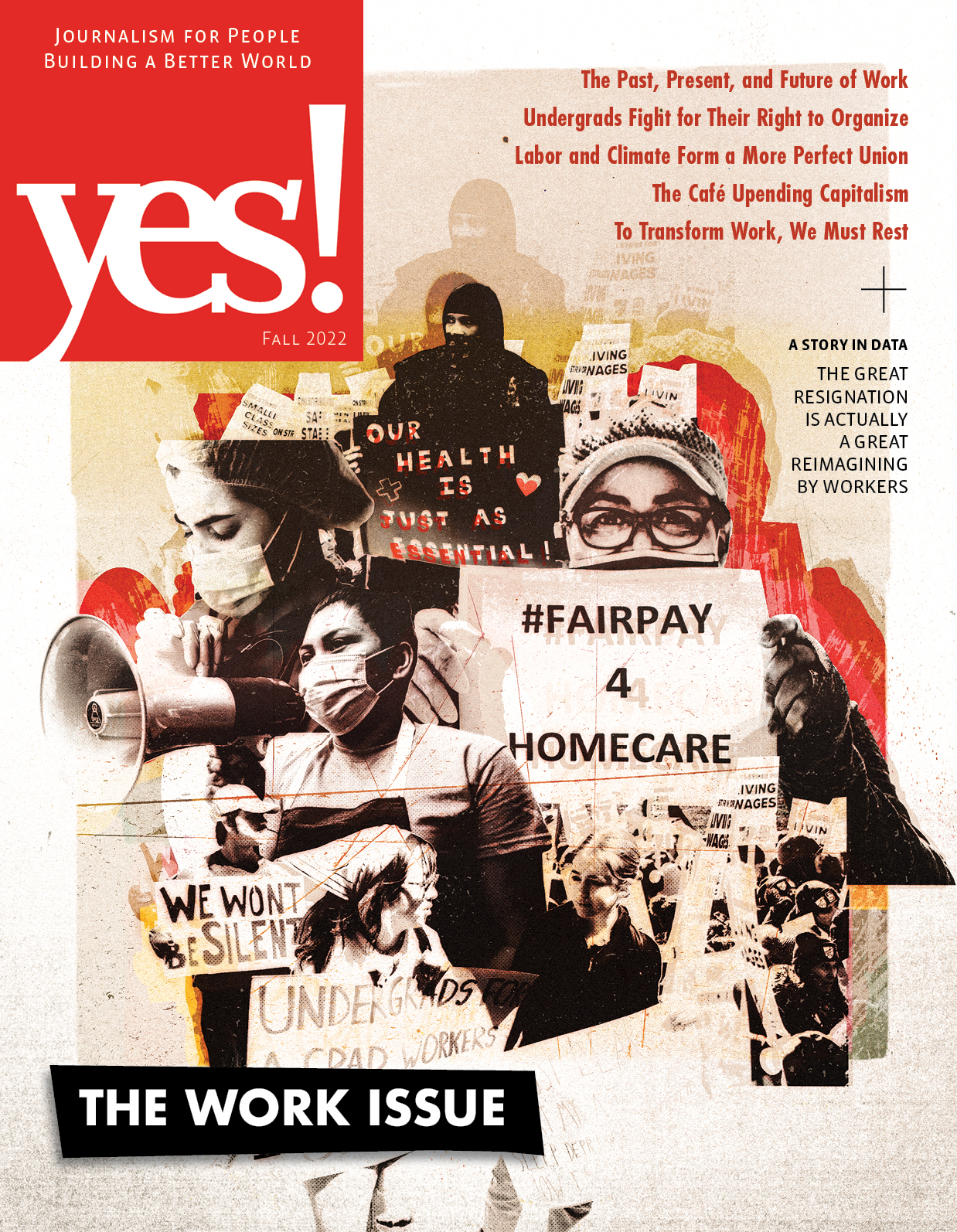Vandana Shiva: Reciprocal Care Will Give Us a Future
In her keynote for YES! Fest, Vandana Shiva mourned the fact that on the day she spoke to us, in early October, in her home country of India, the sun should have been shining, the crops should have been drying, and the soil should have been getting ready for planting. Instead, she said, the rain would not stop. In this way, she illustrates how climate change is impacting far more than temperatures. She calls it a destabilization of the self-sustaining metabolic systems of Mother Earth—a disorder caused by fossil fuels. Our global systems of extraction, pollution, and externalization lead to what she calls “ecological apartheid.”
But she holds on to hope that we can collectively bring Earth back into our imagination—that we can return to the ideas and actions that inspired her work in the Himalayas back in the 1970s: Indigenous ways of being in relationship with and protecting the Earth. This reciprocal care is what will give us a future.

|
Breanna Draxler
is a senior editor at YES!, where she leads coverage of climate and environmental justice, and Native rights. She has nearly a decade of experience editing, reporting, and writing for national magazines including National Geographic online and Grist, among others. She collaborated on a climate action guide for Audubon Magazine that won a National Magazine Award in 2020. She recently served as a board member for the Society of Environmental Journalists and the Northwest Science Writers Association. She has a master’s degree in environmental journalism from the University of Colorado Boulder. Breanna is based out of the traditional territories of the Coast Salish people, but has worked in newsrooms on both coasts and in between. She previously held staff positions at bioGraphic, Popular Science, and Discover Magazine.
|
